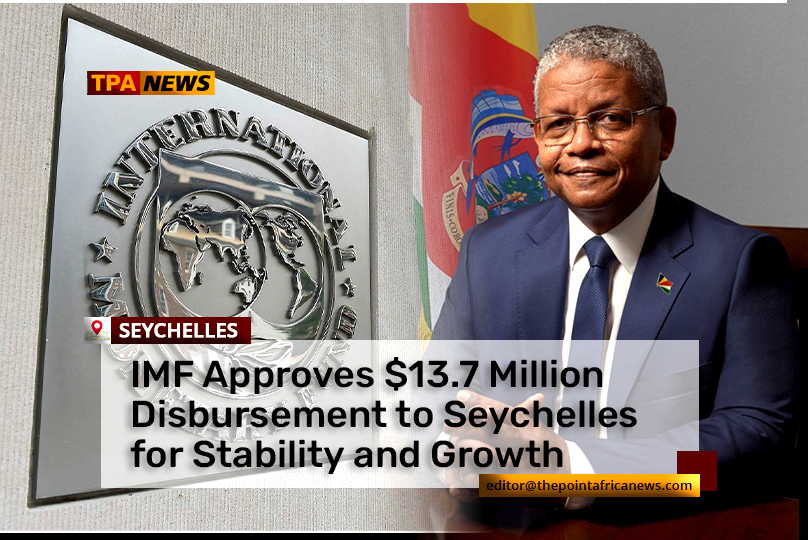By: TPA News Desk | editor@thepointafricanews.com

WASHINGTON, D.C. – The Executive Board of the International Monetary Fund (IMF) on Monday, June 16, 2025, completed the fourth reviews of Seychelles’ economic performance under its Extended Fund Facility (EFF) and Resilience and Sustainability Facility (RSF) arrangements. This approval allows for an immediate disbursement of approximately US$13.7 million to the island nation.
The funds are earmarked to strengthen Seychelles’ macroeconomic stability, foster sustained economic growth, and reinforce critical fiscal and monetary policy frameworks. A significant component of this financial support is also dedicated to enhancing the country’s resilience to climate change, attracting climate-related investments, and leveraging synergies with other sources of official financing.
The 36-month EFF and RSF arrangements for Seychelles were initially approved on May 31, 2023. With this latest disbursement, the total funds released to Seychelles under the current program now amount to approximately US$41.7 million under the EFF and US$18.2 million under the RSF, out of a combined total package of US$102 million.
The IMF highlighted that program implementation under the EFF has been strong, with all quantitative program targets and structural benchmarks for end-December 2024 successfully met. Progress on RSF implementation has also been satisfactory, with all reform measures through March 2025 implemented, although one component related to energy pricing scheduled for April 2025 is delayed.
While Seychelles’ economic growth in 2024 is estimated at 2.9 percent, reflecting some moderation in the tourism sector, the IMF acknowledged the country’s prudent macroeconomic management and commitment to structural reforms. For 2025, the IMF projects a real GDP growth rate of 3.2 percent for Seychelles. The continued implementation of the reform agenda is expected to enhance economic resilience and address external financing risks, particularly by building institutional capacity for climate adaptation and diversifying the nation’s power generation capacity, thereby reducing its dependence on imported energy.








Leave a Reply